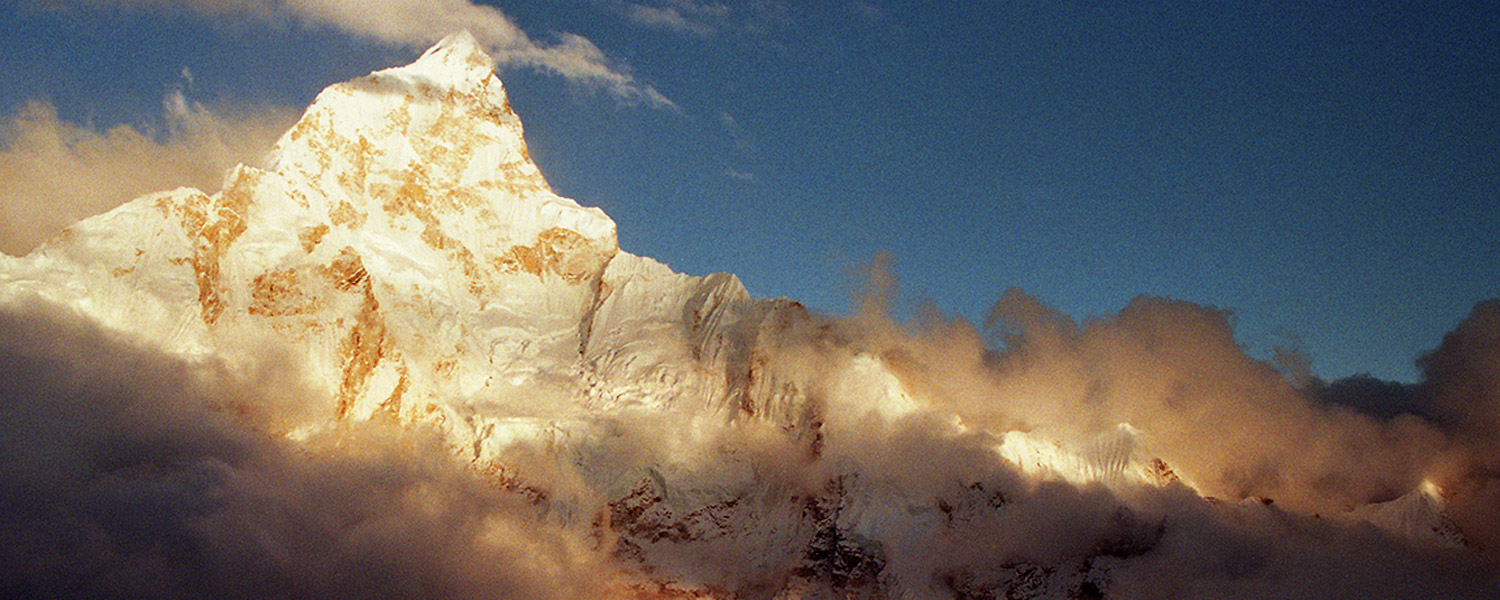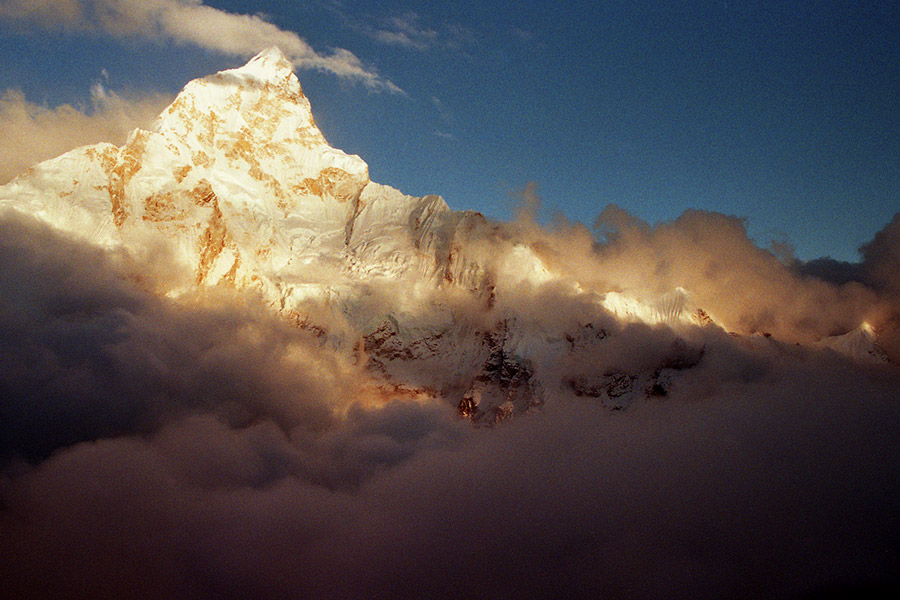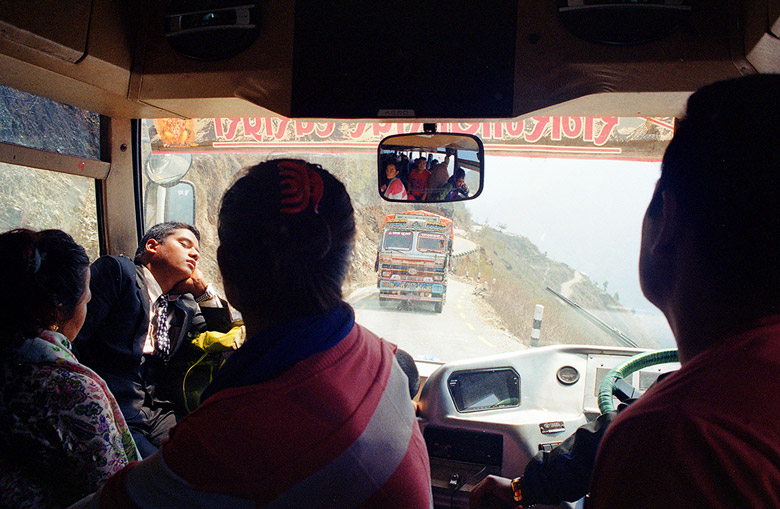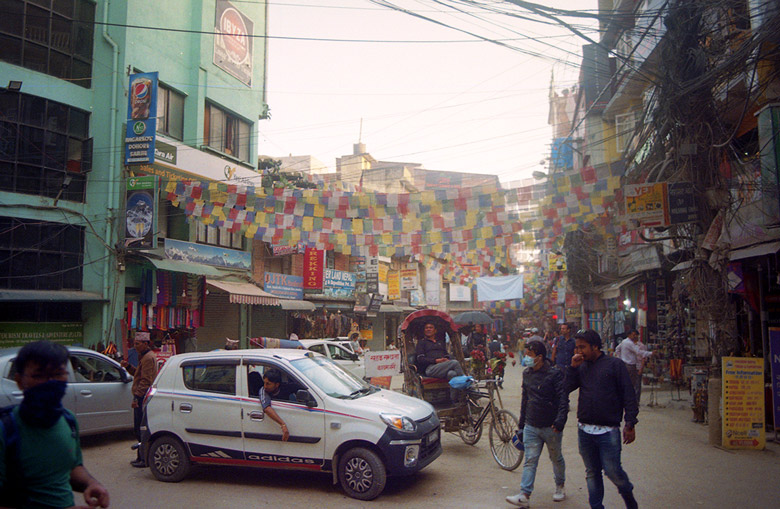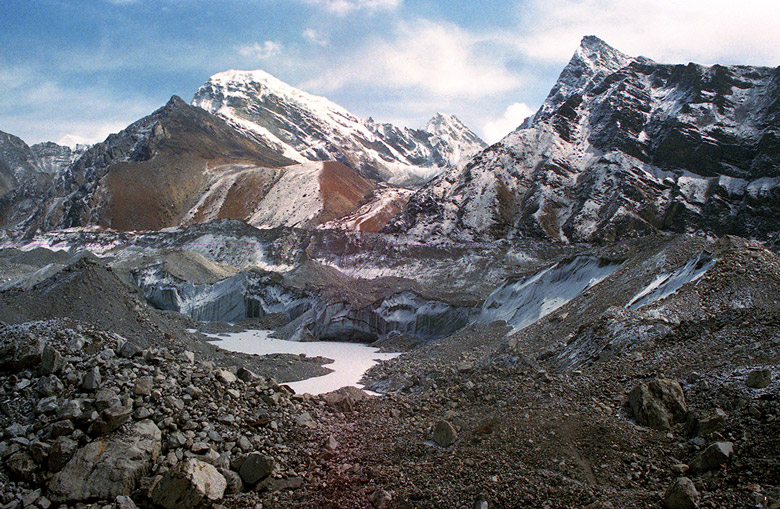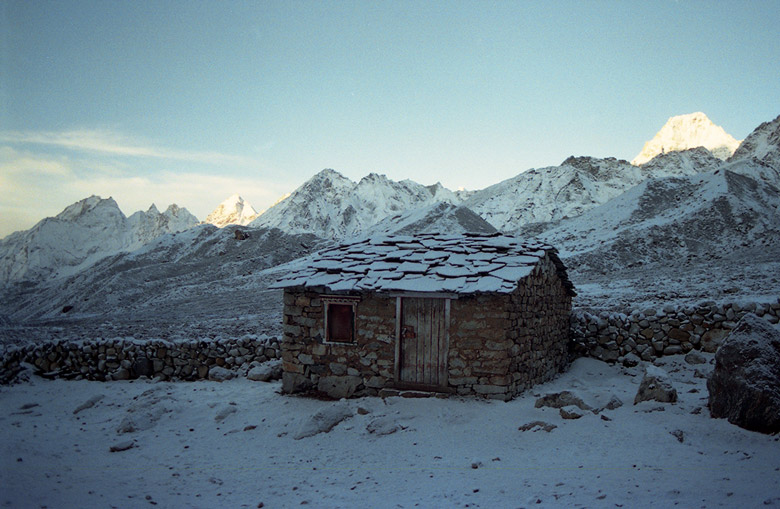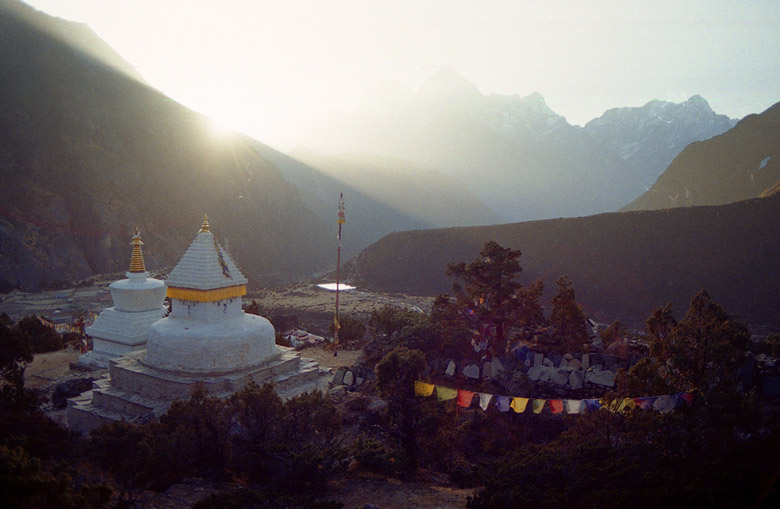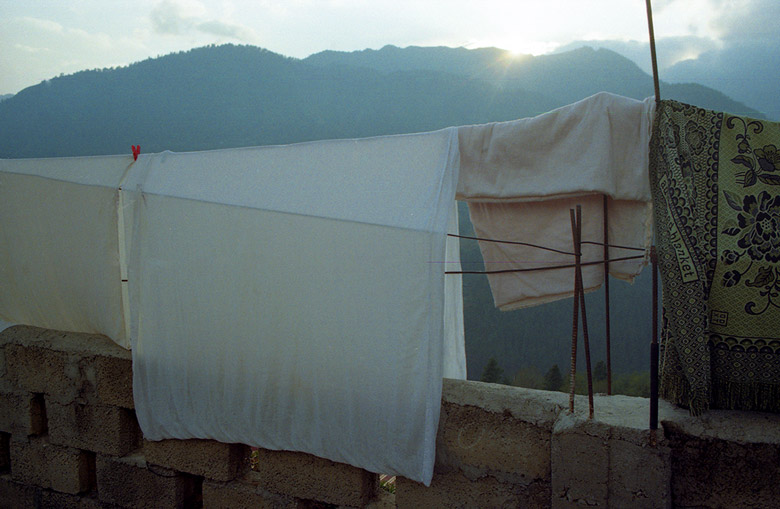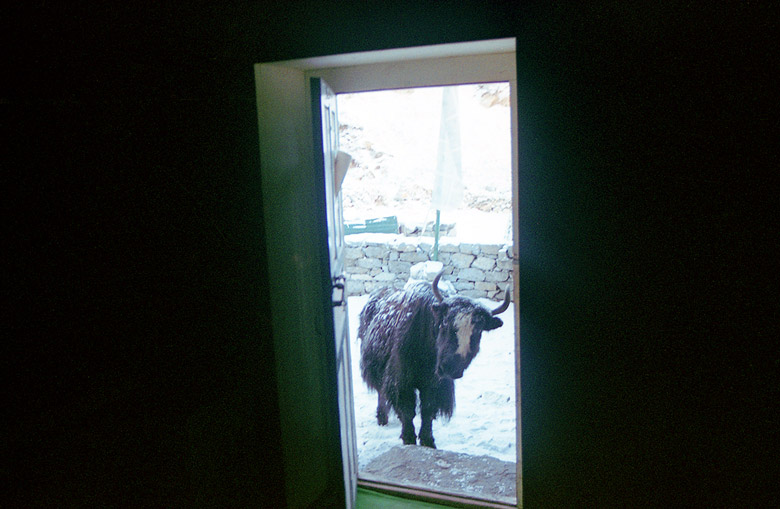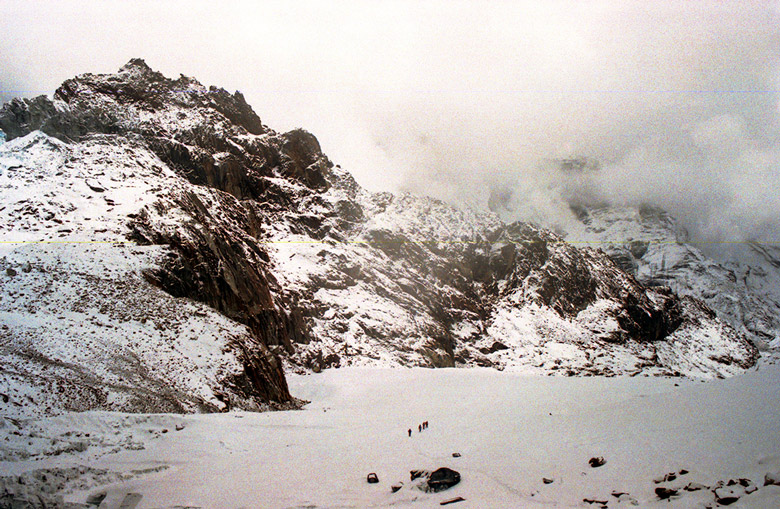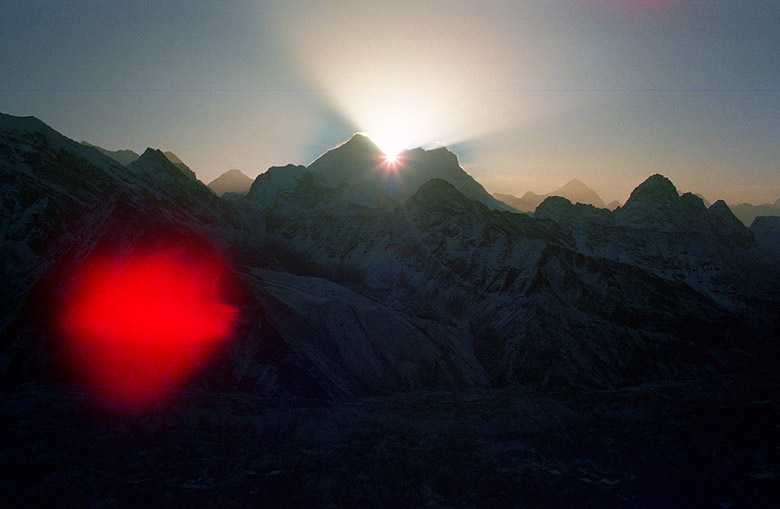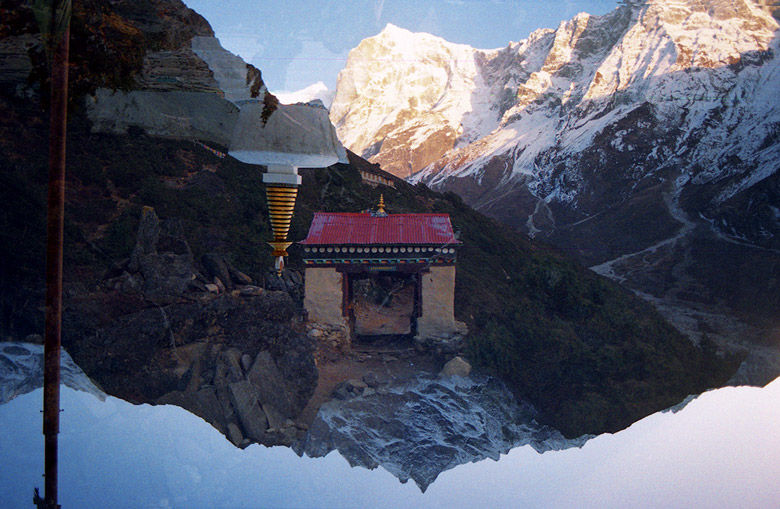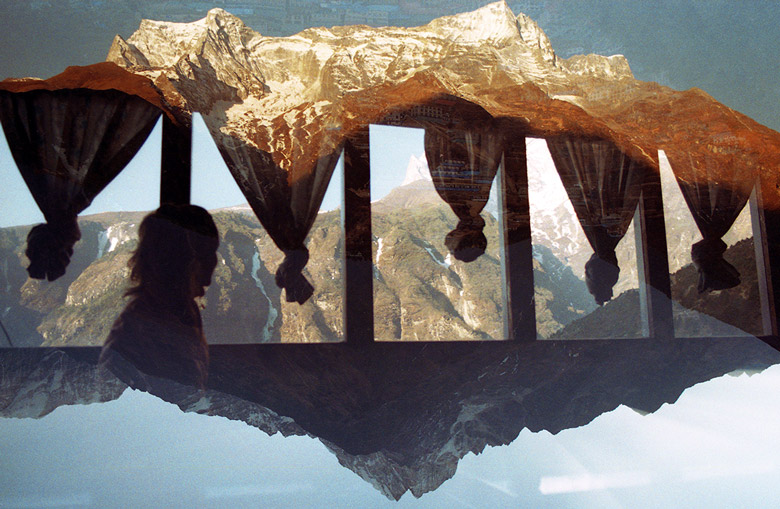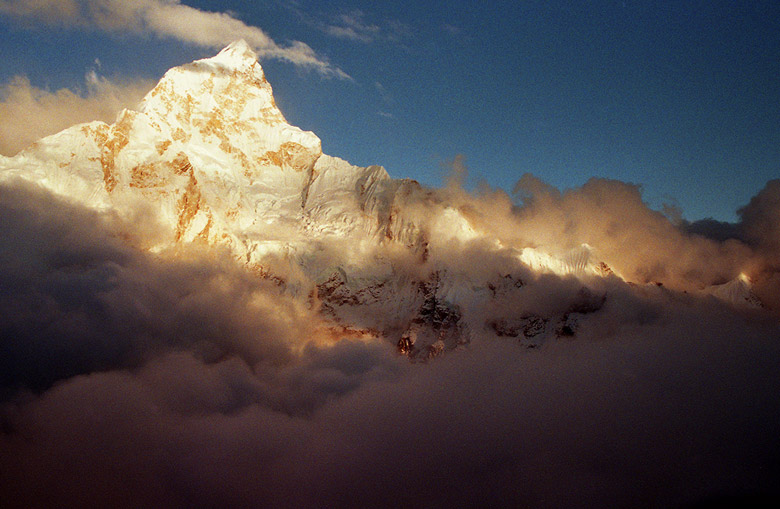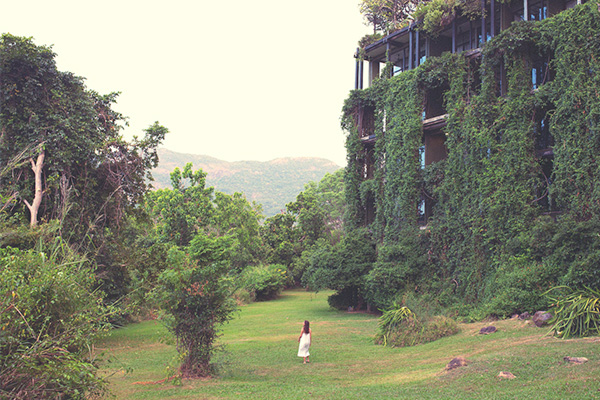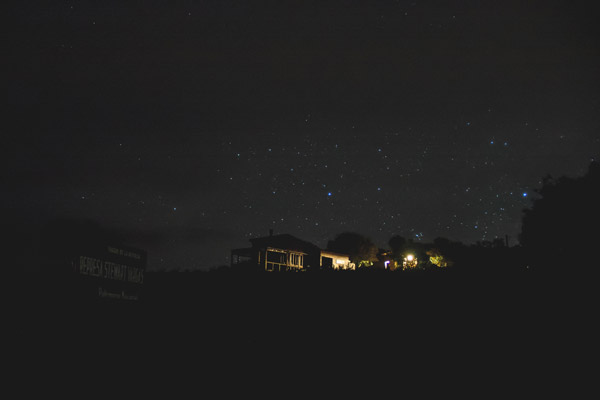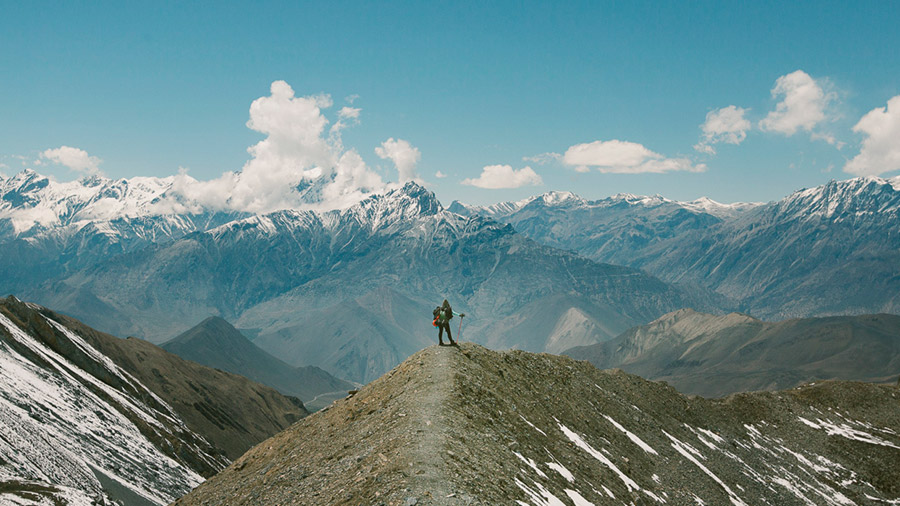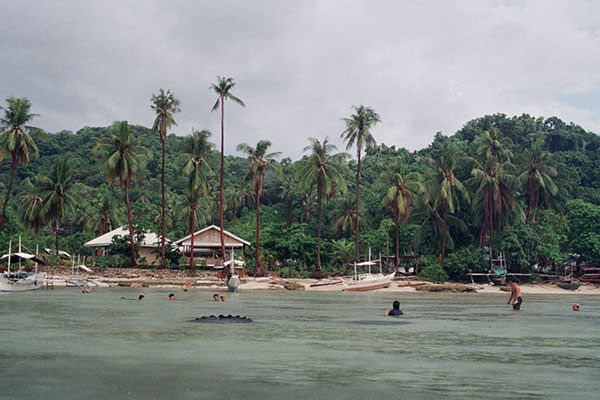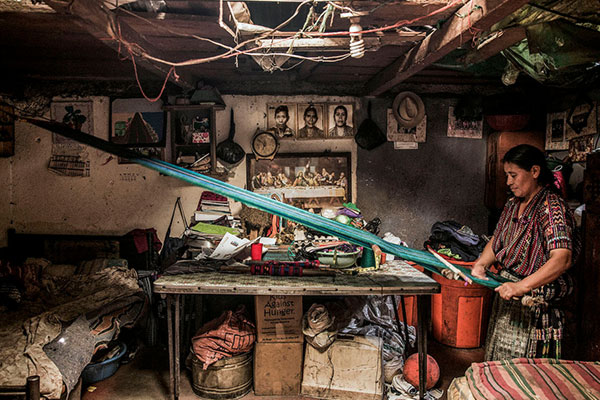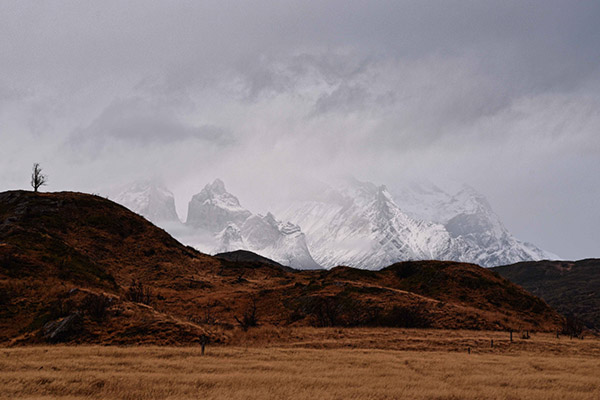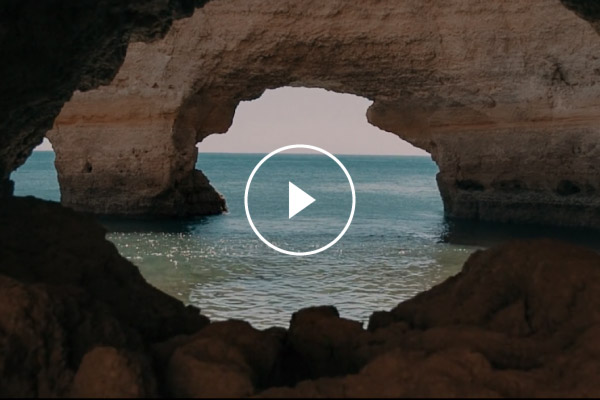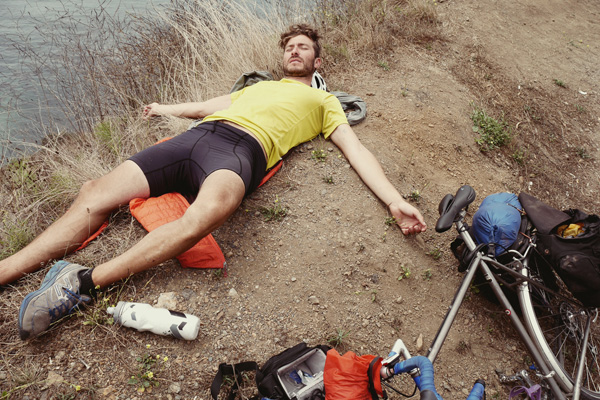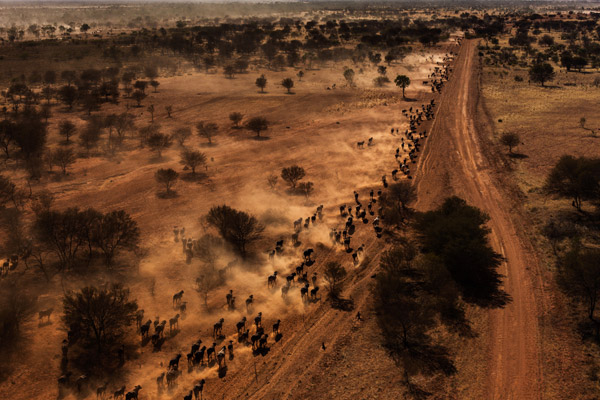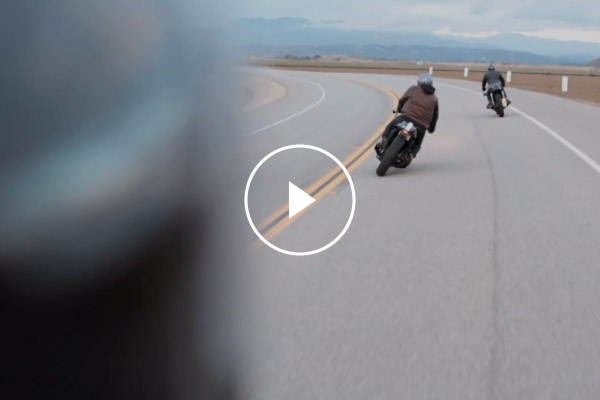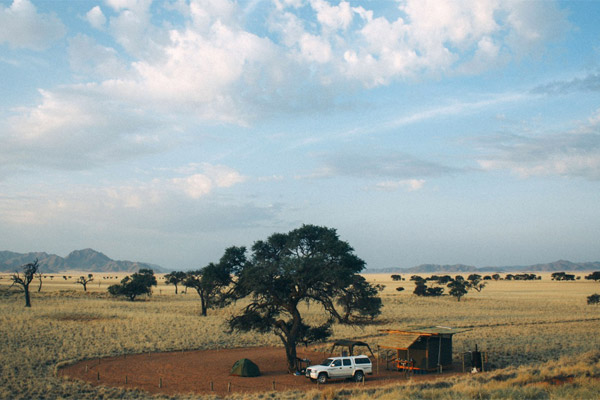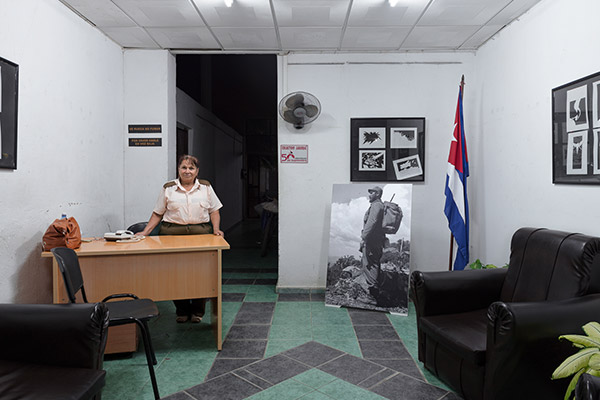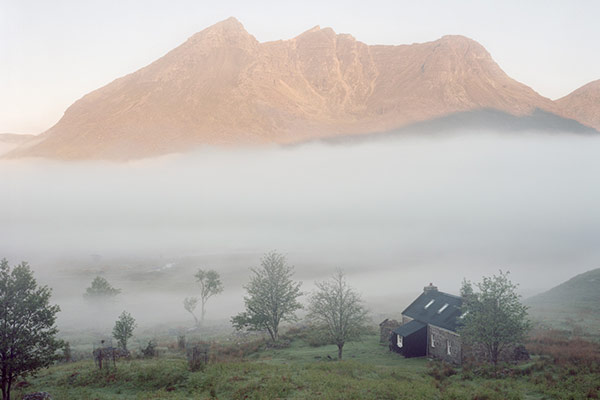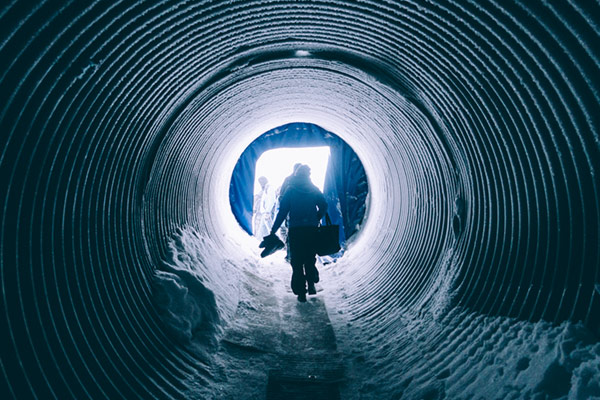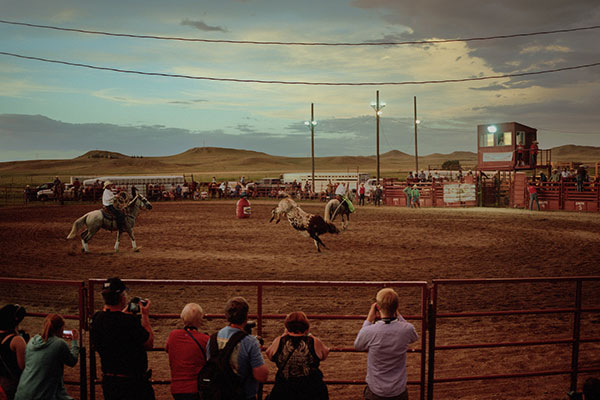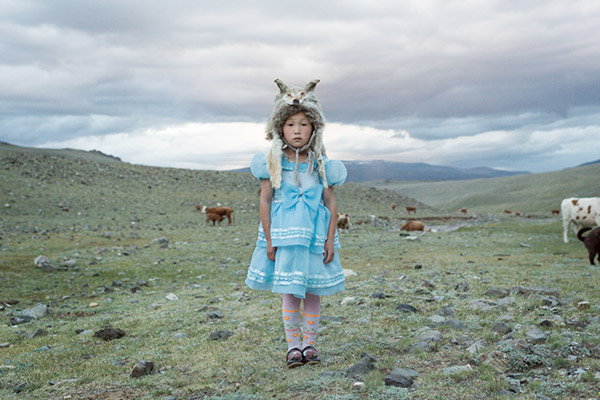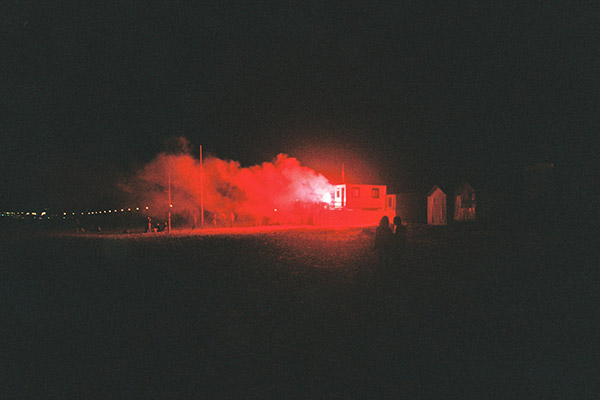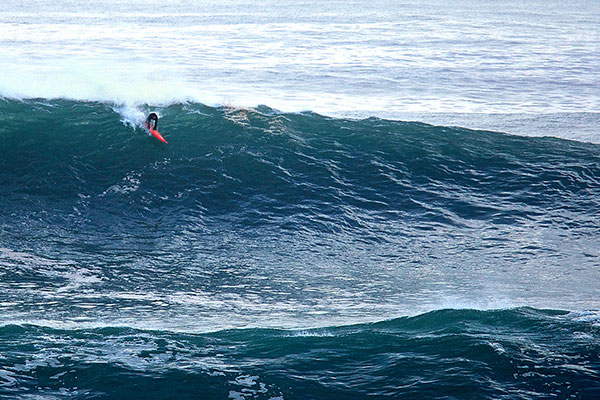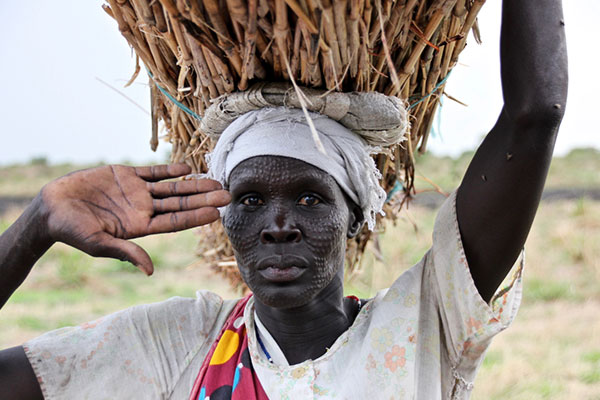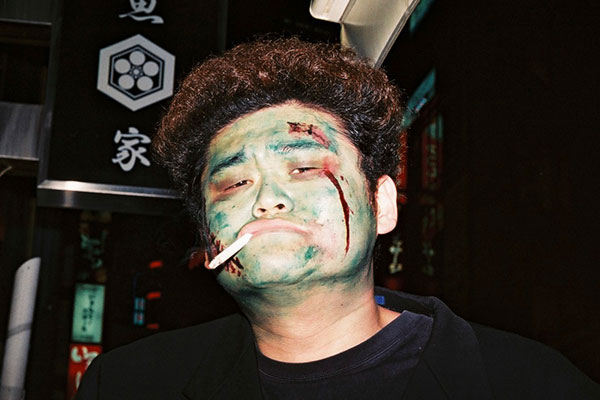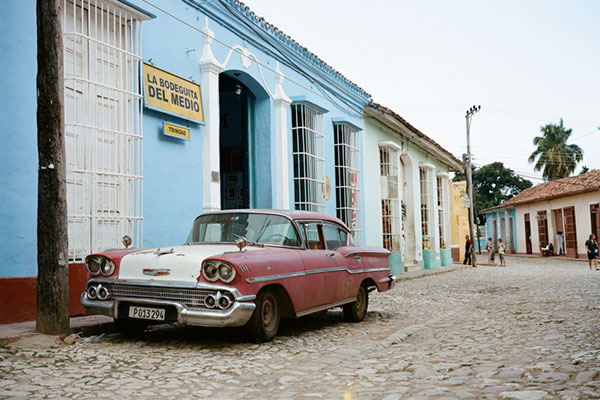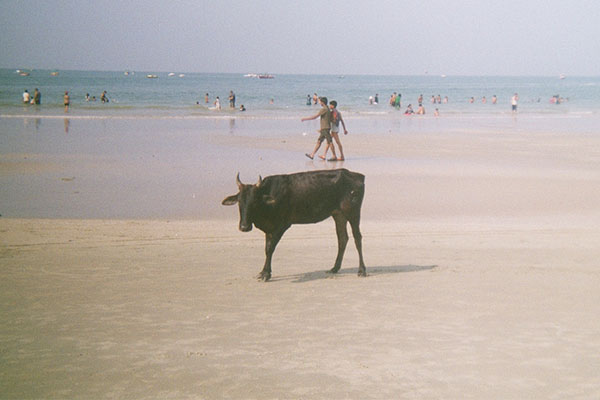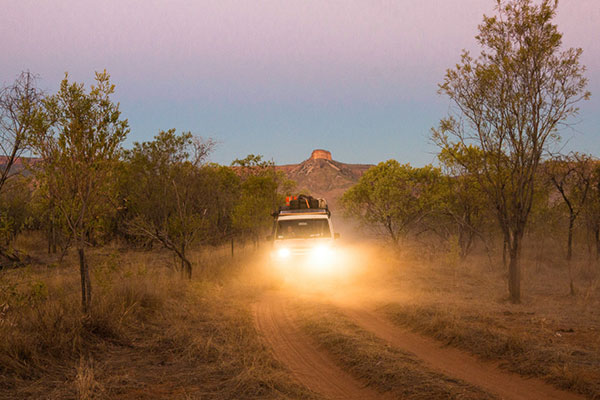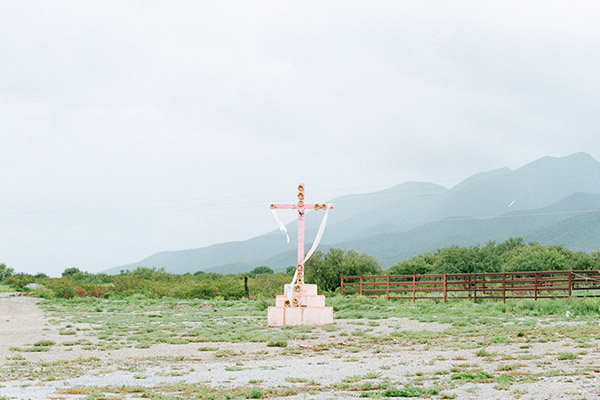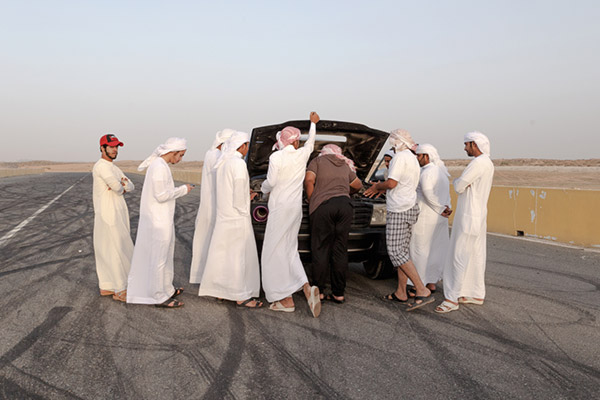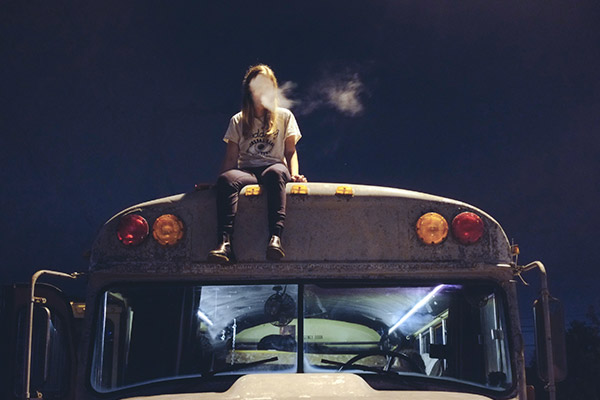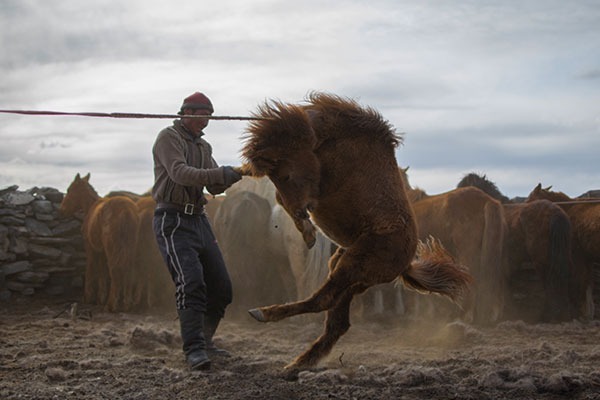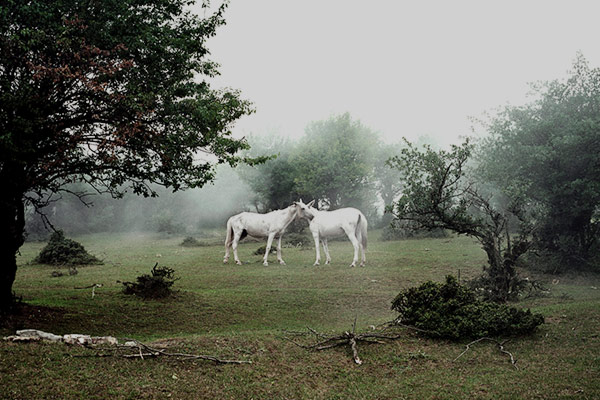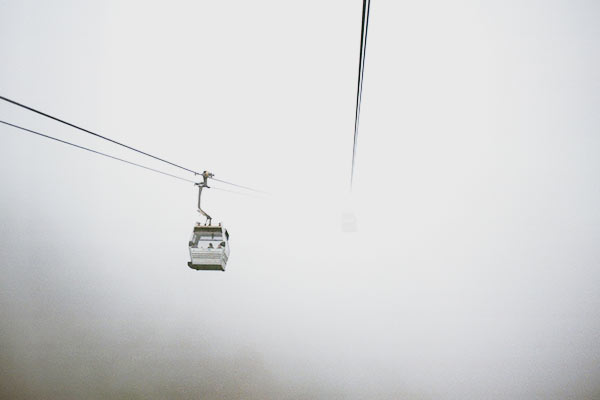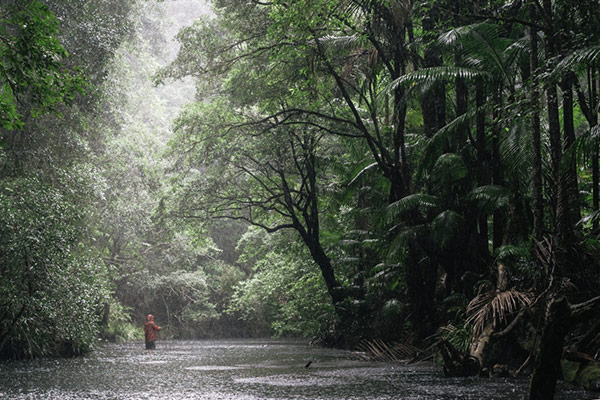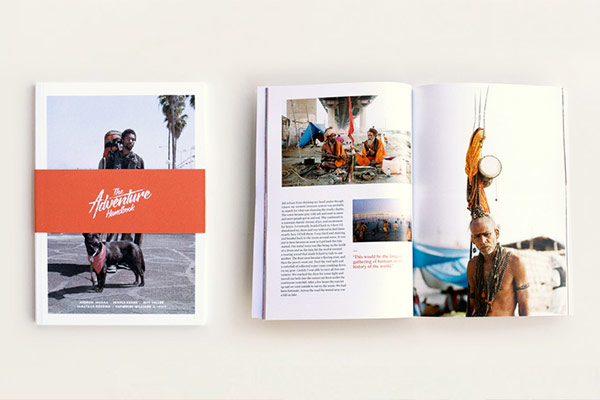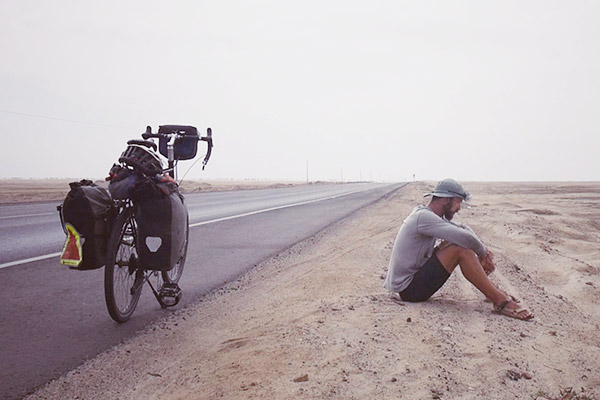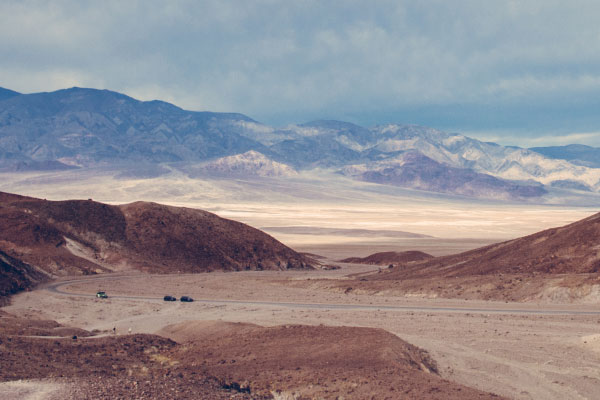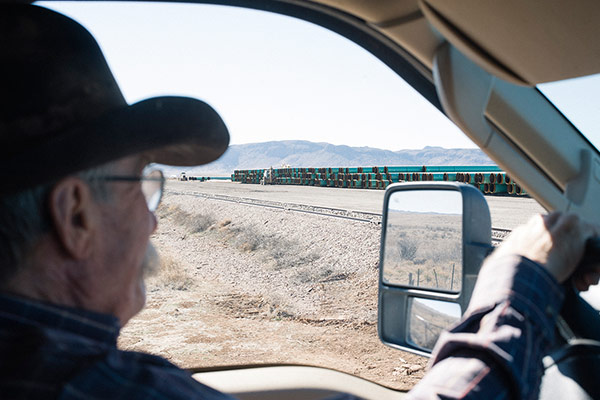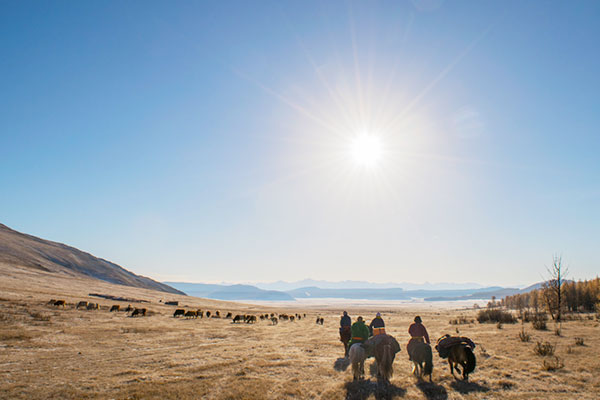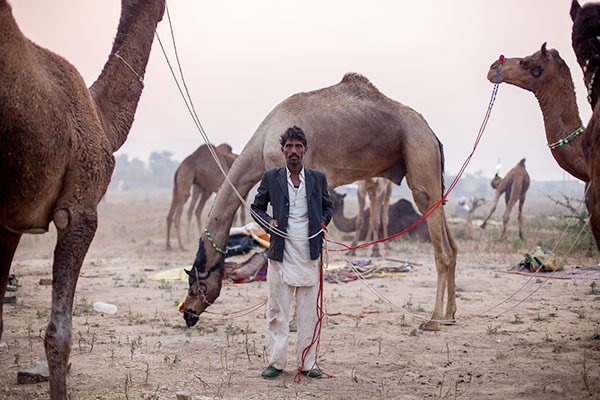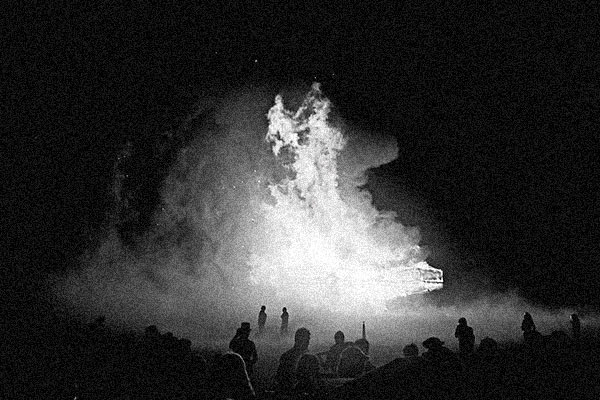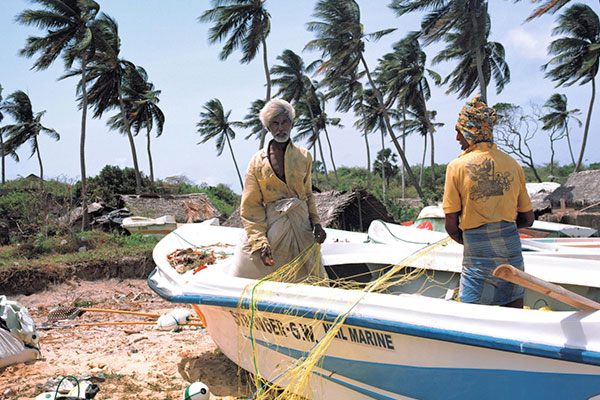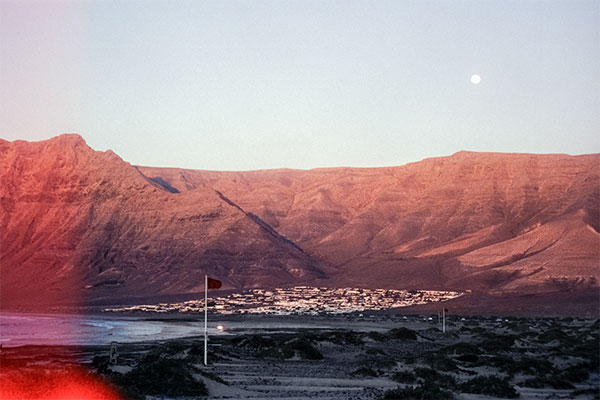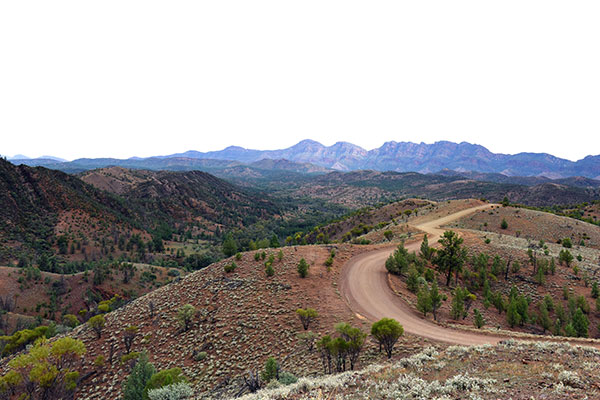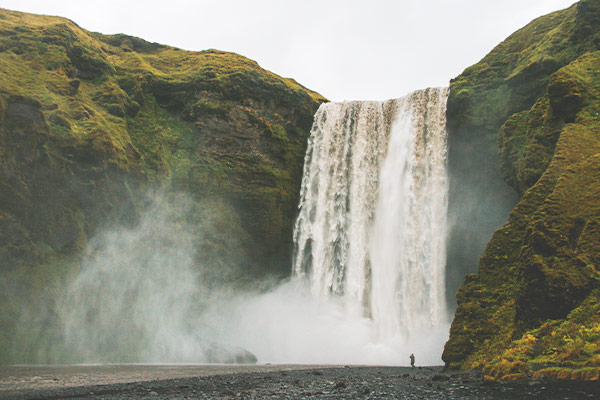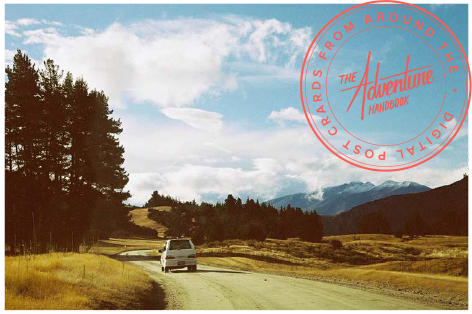They materialise out of hot clouds of dust – dark, emaciated men who whisper and shout and plead: “YAK WOOL, HASH, OPIATES, SEX.” The chaotic traffic of cars and motorcycles and tuk-tuks is deafening. I ask Nicola to repeat herself.
“The colour changes with the light,” she says again. Her cheeks are flushed from the late afternoon heat.
“Right now, they are green,” I say, shaking my head no at the desperate tuk-tuk driver who offers us a ride to Durbar Square, very cheap.
“Sometimes they are brown,” Nicola says.
It seems fitting that her eyes should be these colours. The mountain forests of Bavaria rustle behind her eyes, green and brown.
I wish to say this to her, but then I make eye contact again with the same annoying tuk-tuk driver. He continues to pedal beside us in the hot dust, indefatigable. His empty eyes plead as he turns the clicking wheels. I shake my head again no.
To load the film requires me to remove my gloves. Soon after I remove my gloves, my hands begin to shake. All around me the white out goes a-shivering and a-howling, and the prayer flags are flapping blue white red green yellow. The ambitious ascent of 2000 metres over the past days has me feeling dizzy and disoriented— I load the roll of film incorrectly.
I awake in Gokyo the next morning to discover translucent red boils swelling on my hands. Hot like a fever, they itch painfully. I suspect bed bugs. On the window sill sits my Nalgene. The water inside is frozen solid.
Back in Namche Bazaar, the boils on my hands continue to thrive an angry red. I have begun to wear gloves at all times: the lightest brush against an object sends fireworks of pain exploding through my hand and up my forearm. Nearly a week has passed, and Sir William suggests minor frostbite. He intends to summit Sagarmatha next month. I trust his judgement.
The next morning, I make the one hour ascent to the hospital in Khunde, where a Nepalese doctor informs me that the awful deformities developed from the exposure above 5000 metres.
“The sun,” he says with a glance upward. It seems UV radiation is exponentially more powerful at that altitude, which strength is further multiplied when reflected by snow.
He explains this to me as he gouges the sickly green pus from a small inflamed crater, about the size of a coin, in my kneecap. He has slick dark hair and round brown cheeks and smiles often. He asks me to explain once more how this injury, the primary reason I am here, occurred. I have already told him but I tell it again because the telling takes my mind off the pain.
“Motor…cycle,” I say, miming the throttle. Hot pain goes needling up my knee as he digs into the infected wound with betadine-soaked gauze. “A trucker ran me off the road. It was bigger before, went from here – to here,” I say, flinching as I indicate shoulder to knee. He is tearing away sodden fragments of the yellow-green scab with tweezers.
“It had almost healed by the time I arrived in Solukhumbu. But some dust got in, you see— it got infected…”
He nods without looking at me as he tweezes at the remaining flap of flesh. He pulls and pulls, the flesh stretches but it will not come. He explains that he will have to cut it.
Fuck.
I assent grimly, mmhmmm. With the tweezers he lifts the flap of yet living infected flesh and, taking a small pair of scissors in his other hand, carefully cuts: snip snip snip. I clench dizzily and shiver with pain. But it is finished.
One day, whilst recuperating in Namche, I discover a book on Sherpa culture. I pass the day in the teahouse with my leg elevated, swallowing antibiotics and sipping hot honey-coloured tea as I read. I learn that lungdar are the prayer flags. Dawa is the moon, nyima is the sun, and karma are the stars.
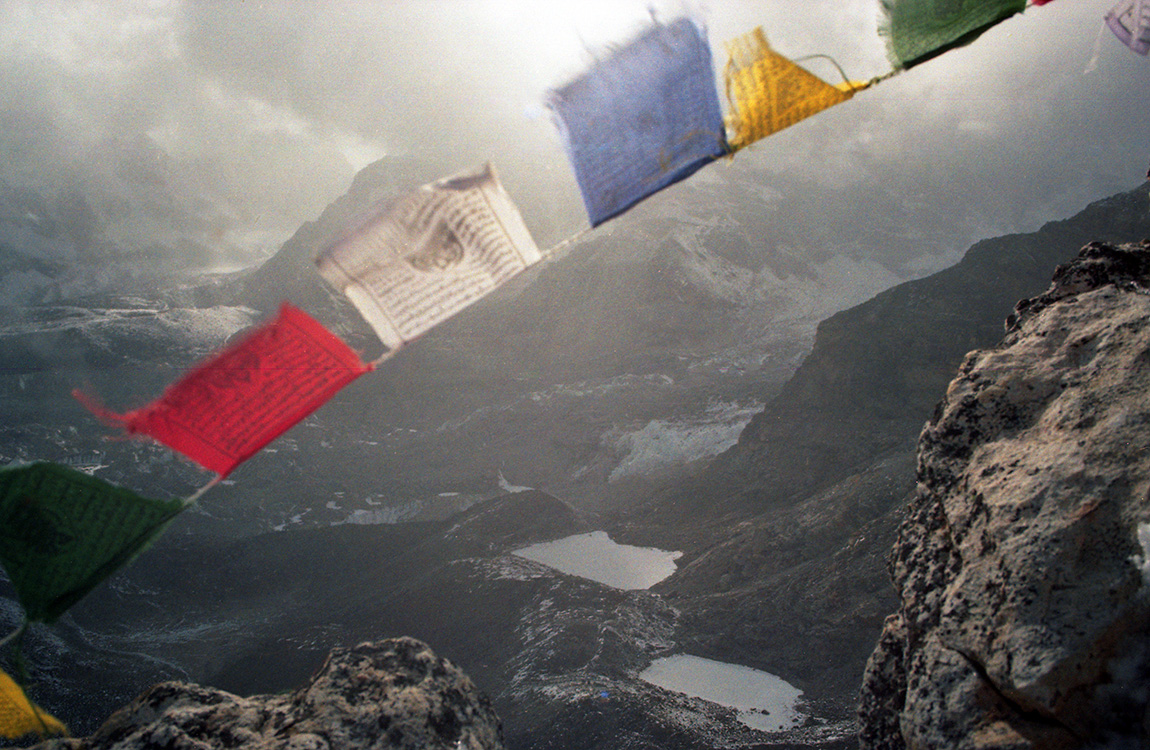
The grandmother who lives in this Nepalese teahouse has one of the kindest faces I’ve ever encountered. Far-focused gaze, silver hair, great leathery wrinkles— it’s the kind of face you might go to for advice in times of doubt, the face of a wise village elder. Now, this grandmother is completely mad. She thieves things from the guests and hoards them like a mockingbird. She has dementia, you understand.
Sooner or later, anything left unattended in the common room will find its way into the folds of her many coats. Witness Conor, a tall and generous young Aussie with a penchant for Coconut Crunch, lose his wallet just thirty minutes after his arrival.
A plate of dal bhat, steaming delectably, arrives at the table where Conor sits reading, and he leaves the room to wash his hands. His wallet and book remain on the table. We’re among Buddhists in a remote Himalayan village after all, what could possibly happen to his wallet?
I sit across the room enjoying my own lunch of rice with lentil soup, watching the whole glorious crime unfold. As soon as Conor is gone the grandmother makes a beeline for his table. She shuffles along slowly, inexorably, her many jackets going swish swish swish. Ever so casually, she begins to inspect his copy of Walden. She reorganises the things on the table— nudges the plate, adjusts the fork, puts the wallet on the book, then the book on the wallet, and finally gives them a quarter-turn. Suddenly, SWISH!— she plunges the wallet into a coat pocket. She then tucks the book beneath her arm and shuffles innocently past the returning Conor, clueless.
Conor sits down to his meal with an expectant sigh of pleasure. If you’ve spent the better part of the day engaged in Himalayan ascent, there is, after all, nothing so satisfying as a massive pile of rice with hot lentil soup. It is in this moment so pregnant with simple joy that Tara chooses to lean over and say, “Conor, the old woman has your wallet.” Tara, like myself, saw it all. She’s been sitting at the next table the whole time.
“The old woman has your wallet, Conor,” she repeats. This takes a moment to register with Conor, who looks from Tara to the frail figure with the kind face. This is when I interject –
“So, uh, she’s not malicious or anything, but she likes to take things that are left about. She has dementia, you see.”
“Huh,” says Conor.
After a pause, he gets up. He strides past the wood stove, steps echoing hollow across the room to where the woman is milling about aimlessly near the entryway. In the entryway hangs a heavy blue curtain embroidered with an endless knot. This is to prevent dust from entering.
Conor politely asks for his things back, indicating the book and wallet which the old woman guard suspiciously to her breast.
“You’re just gonna have to take them from her, man,” I say again.
The curiosity of all present has been aroused. The group of Czechs, the two Swedish gentlemen, and the Romanian couple cease conversing in their respective languages to watch what Conor will do. With some hesitation, he reaches for the items. But the old woman refuses to give them up. She appears to believe that they belong to her and has a surprisingly tenacious grasp for her age.
Conor laughs nervously as he repeats that the things are his. They belong to him, he says as he attempts unsuccessfully to pry them from her grasp.
“I don’t think she can understand you, Conor,” Tara says wryly.
The grandmother splutters fiercely up at the tall white stranger who she believes is attempting to rob her. Nobody has any idea what she is saying, could be Sherpa, could be gibberish, but she is clearly incensed.
Finally, Conor’s exasperation overcomes him. With great force he jerks the book and wallet from her grasp. He is sorry, but they are his things, he explains, mildly abashed, before returning to sit down. He grins amiably around the room then dives into his dal bhat, which, although no longer steaming, is still very much a delectable source of 24-hour power.
The poor grandmother stands unmoving. She is indignant. Gradually, she grows docile. Then she wanders out through the blue curtain embroidered with an endless knot, into the dusty yard enclosed by low walls of stone. Through the window I watch as she begins to discourse seriously with an ox.
Receive a postcard from us sign up


